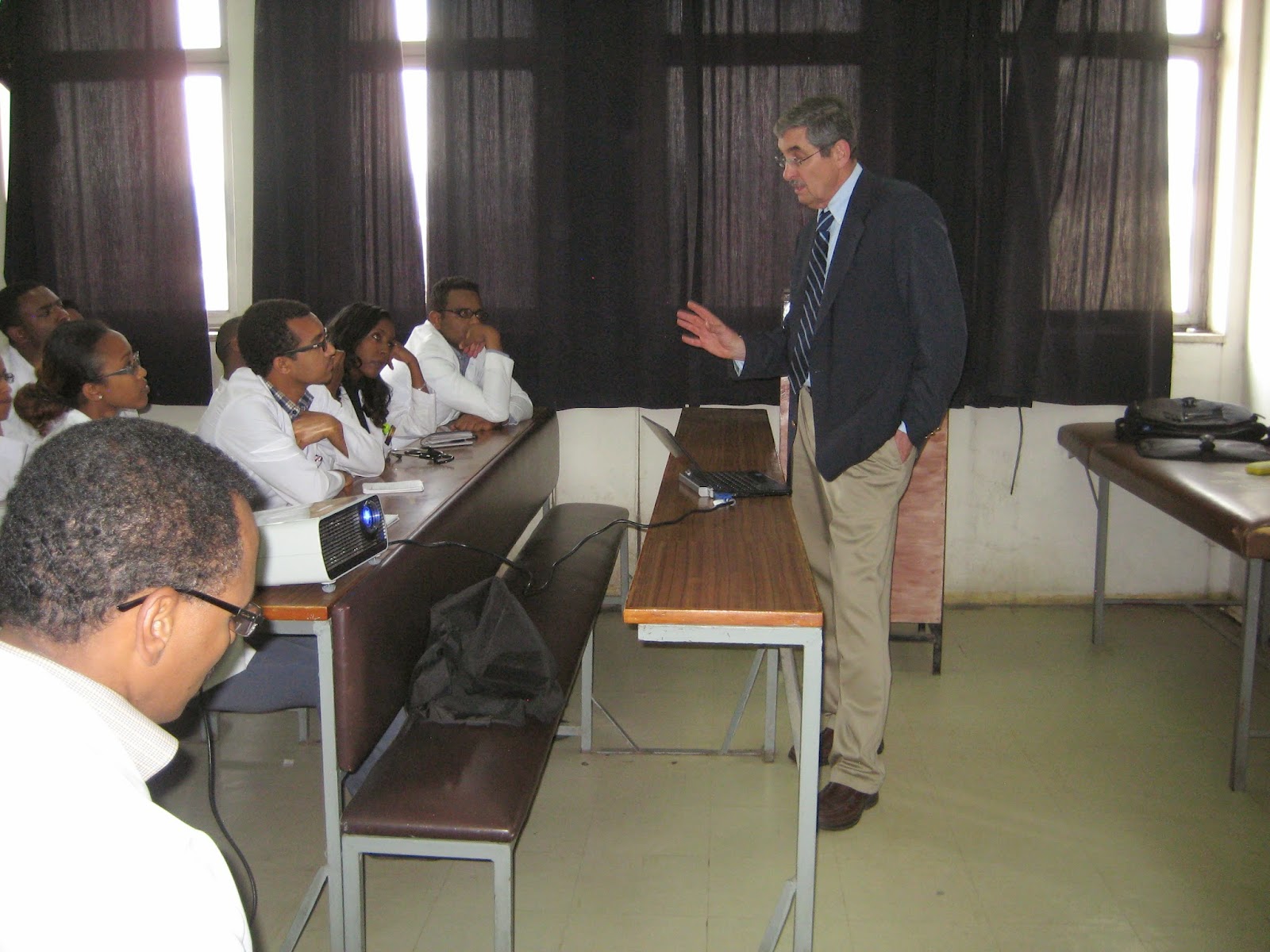Summary:
1.
Greatest need that our Endocrinology patients
have:
1.1. Educational:
Well designed educational tools in particular for our diabetic patients
that can be modified and adopted to our Situation
1.2. Support for lab Services for diagnosis and
follow up:
a.
Development of Hemoglobin A1C that is
standardized and available both in the labs and point of care
b.
Hormonal assays for Vit D, PTH, Testosterone,
and pituitary hormones.
-
Inconsistently available and sometimes issues
with reliability
c.
Cosyntropin Stimulation test
-
Diagnosis of adrenal insufficiency is mainly
based on clinical evaluation
d.
Biochemical tests to diagnose pheochromocytoma:
not available at all
1.3. Treatment
related needs
a.
Point of care HbA1c for outpatient services
b.
Glucometer for SMBG for type 1 diabetic patients
in particular and some of type 2 diabetic patients
c.
Glucometer for the inpatients admitted with
diabetes mellitus to the ICU, general internal medicine wards, and Obstetric
wards.
-
Great difficulty in managing these patients
without their glucose being monitored.
d.
Insulin per fusers for patients admitted to the ICU with DKA or
HHS
e.
Diabetic foot ulcer wound care supplies,
different dressings for DFU etc.
f.
Antithyroid drugs;
-
PTU is the only available drug, with
questionable efficacy of the available products.
-
Great need to have access to Methimazole/
Carbimazole.
2.
Educational Needs:
Access to reputable International Society Guidelines
and Journals free of subscription fees.
3.
Greatest health care challenge in Ethiopia
-
Although there is improvement from the situation
few years ago, health care accessibility is a great challenge because of the
limited resources and trained health care workers. The growing magnitude of
noncommunicable disease, in particular of diabetes mellitus, had and will be
having great impact on the health care system in Ethiopia.
















































